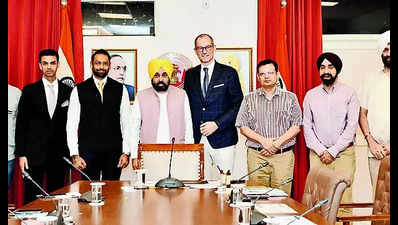RAWALPINDI: For Kishwar Naheed, one of Pakistan’s greatest living Urdu poets and writers, visiting the hundreds of book stalls stretched along Rawalpindi’s main Saddar market was once a usual Sunday morning activity. But as the stalls have dwindled and book hawkers have disappeared, Naheed and others like her have been left only with the memories and a deep sense of loss over a disappearing literary culture and what was once the center of Rawalpindi’s intellectual life. “Every Sunday morning, Zahid Dar [Urdu poet], Intizar [Hussain] Saab [novelist], myself, all my writer friends, we used to go there [Rawalpindi book bazaar] and try to pick up books,” Naheed told Arab News in an interview this week.
“It was a craze for books.” Rawalpindi’s open-air book stalls came up in the eighties and thrived until at least 2010 when the downfall slowly began, said Fareed-ul-Haq, a 69-year-old book stall owner. “I’ve been selling books in this market for 25 years and this roadside book bazaar has been around for 50 years,” he told Arab News, saying people used to travel from other cities to visit the stalls, browsing for hours and often arriving with handwritten notes of titles they wanted.

“I have seen the high point of this market when the condition was such that it was so crowded it was difficult to walk here. Now people bring their books and it turns out they are their grandparents’ books and the grandson wants to sell them because he doesn’t value books.” The roadside stalls offer a wide variety of new and old books: antique volumes, school books, historical works, fiction in different languages and all kinds of magazines.
But the rise of digital media and online bookstores has impacted the viability of book bazaars, sellers and customers said, with smartphones and social media causing a shift worldwide in how people consume information and read. “We live in an era of social media, online and virtual books and many people don’t prefer reading physical books anymore,” Noaman Sami, a media sciences student at Rawalpindi’s Riphah International University, told Arab News. Economic factors are also behind the decline in book bazaars, according to Muhammad Hameed Shahid, a Pakistani short story writer, novelist and literary critic.
Rising rents, inflation and the increasing cost of living had made it difficult for many booksellers to sustain their businesses, while customers had less money to spend on luxuries like books. Urban development projects have also displacd book bazaars as the literary corners are repurposed for commercial or residential development. “Ordinary people often can’t afford expensive books, but at these roadside book stalls, you would find treasures,” Shahid said.
“There’s a wide variety of books available, and these vendors sitting on our footpaths deserve support so that through them the flame of knowledge stays alive and books continue to reach our children.” The bazaar, the writer said, had been a major player in his own literary journey: “These vendors who used to be sitting on the footpaths with books spread around them, those books, covering all sorts of topics, they played a vital role in my career, they inspired me to become a writer.” Future generations in Rawalpindi won’t get to experience this, Haq, the bookseller, lamented.
“I’ve seen this market crowded with people,” he said as he sat alone at his stall on a Sunday morning this month, waiting for customers. “But now, it’s nearly empty.”.


















